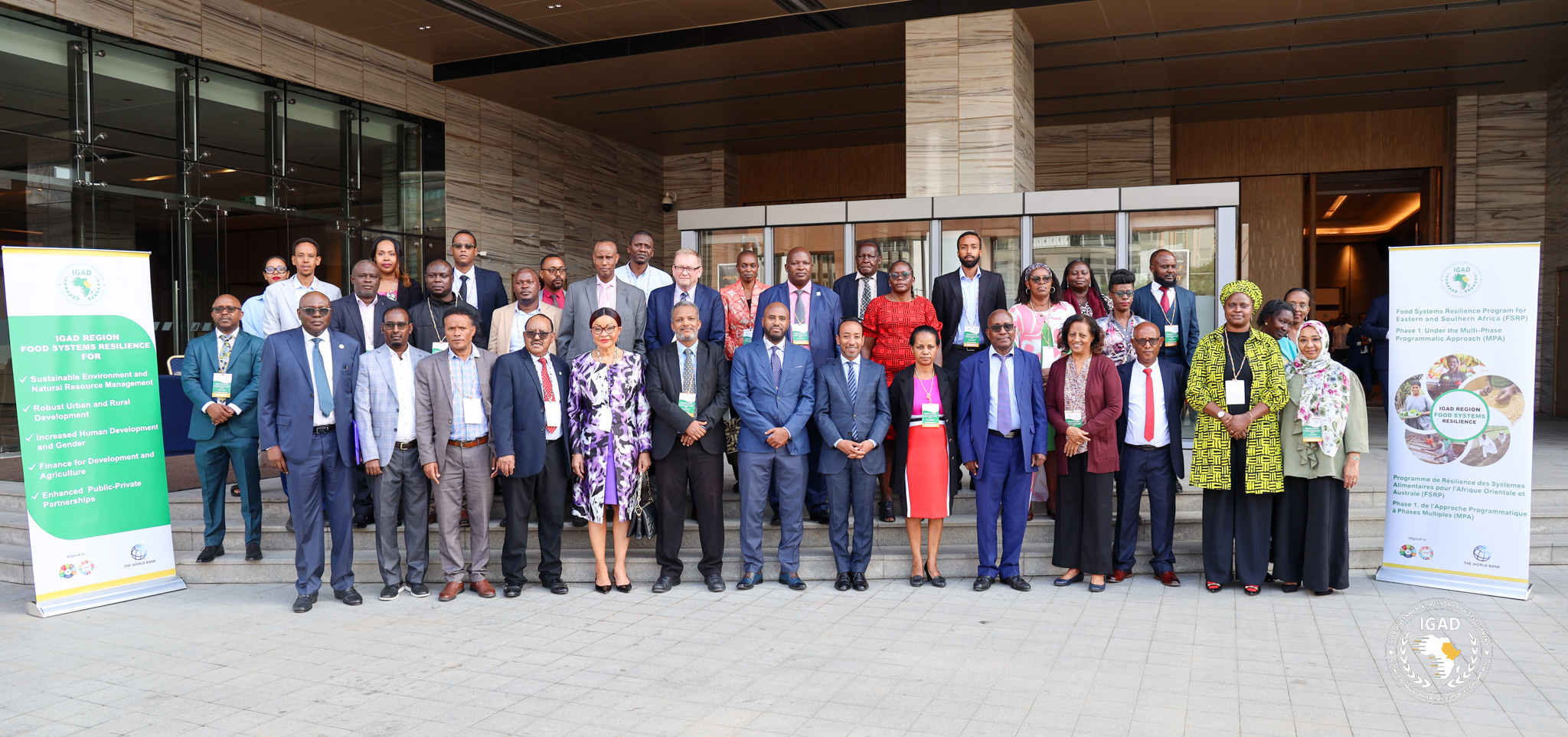Food Systems Resilience Programme for Eastern and Southern Africa launched in Addis Ababa

Photo: IGAD
The Food Systems Resilience Programme (FSRP) for Eastern and Southern Africa was launched in Addis Ababa, Ethiopia on the 1st of February 2024. The launch was facilitated by one of the regional implementing partners, the Inter-governmental Authority on Development (IGAD).
This event was officiated by Ambassador Josefa Sacko, the African Union’s Commissioner for Rural Economy and Agriculture. In her remarks, Ambassador Sacko underlined the strategic importance of FSRP for the African continent given the food insecurity related challenges faced by Africa, which are mainly linked to the effects of climate change and other related socio-economic shocks. She appreciated the financial support from the World Bank and appealed for inclusion of other regions like Central Africa.
FSRP is a World Bank funded regional initiative which is being implemented in phases, with the first phase of 6-year duration focusing on Madagascar and Centre for Coordination of Agricultural Research and Development for Southern Africa (CCARDESA) in the SADC region, and Ethiopia and IGAD in East Africa. In the SADC region in particular, FSRP has now evolved to include Comoros, Malawi and Tanzania. Additional countries are expected to join in future phases.
On behalf of the World Bank, Mr Timothy Robertson, expressed his appreciation for the attendance and support from IGAD in particular. He reiterated the World Bank’s commitment to work with all implementing partners to bring the much-needed change in terms of resilience building in Africa. He also noted that FSRP resonates with the post-Malabo agenda, which is expected to meet the needs of sustainable food systems transformation by building on previous successes while addressing evolving challenges.
In attendance were representatives from other implementing agencies, including the African Union and CCARDESA, as well as some of the implementing countries such as Ethiopia, Somalia and Kenya. The event was also supported by a number of partners from UN agencies, CG Centres, the private sector and representatives from the Farmers constituency.
For many in attendance, this was more than just a launch, but a platform to share knowledge, exchange ideas and get a better understanding of the entire programme. It was also an opportunity for regional and national implementing partners to find better means for collaboration in order to improve food systems resilience in the African continent.
























































